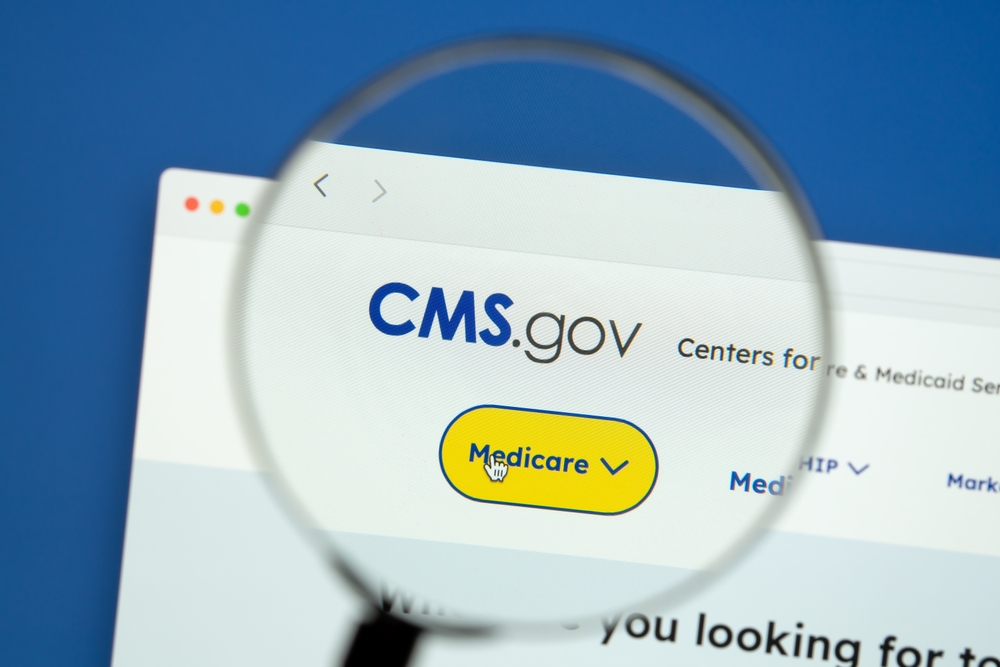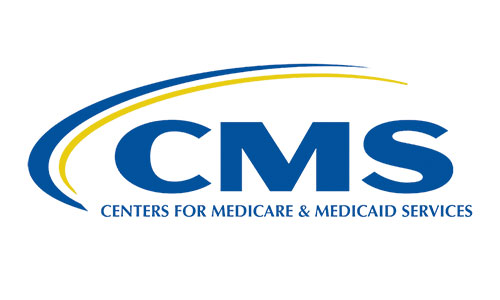Story by Connor Danielowski / October 27, 2025


CMS (Centers for Medicare & Medicaid Services) establishes specific compliance requirements for Chronic Care Management programs to ensure proper Medicare reimbursement. These requirements cover documentation standards, time tracking, patient consent, care plan elements, and billing procedures.
Quick Answer: CCM compliance requires documented monthly encounters of 20+ minutes, comprehensive care plans, signed patient consent, real-time EMR documentation, and detailed time tracking. Non-compliance risks audit penalties and Medicare reimbursement recoupment.
For most healthcare leaders, compliance represents more than regulatory requirements—it often triggers associations with operational risk, administrative burden, and extensive documentation demands. However, in Chronic Care Management (CCM), compliance forms the essential foundation for sustainable program success rather than merely a bureaucratic obstacle.
Medicare reimburses CCM services specifically to support patients managing two or more chronic conditions. Yet this same revenue opportunity carries audit exposure risk when documentation fails to meet CMS standards.
The encouraging reality? CCM compliance becomes straightforward when organizations build it into operational processes from the beginning rather than addressing it retroactively.

Even well-intentioned CCM programs encounter compliance difficulties when treating documentation as an afterthought rather than a core operational element. The most frequent compliance failures follow predictable patterns.
Fragmented documentation systems create compliance vulnerabilities when patient care coordination notes exist outside the official electronic medical record, generating information gaps and documentation duplication that auditors flag immediately.
Inconsistent time tracking practices violate CMS requirements despite mandating documented evidence of 20+ minutes monthly per patient. Manual time estimation rather than contemporaneous recording leads to audit findings and reimbursement recoupment.
Insufficient audit visibility prevents leadership from verifying program compliance when organizations lack clear reporting systems showing enrollment accuracy, time documentation, and service delivery completion.
Reactive compliance reviews occur only after problems surface—typically during Medicare audits when correction opportunities have passed and financial penalties loom.
These compliance weaknesses create multiple organizational consequences beyond audit risk. They cause missed legitimate reimbursement opportunities when documentation inadequacies prevent billing for services actually provided, and they erode stakeholder trust when compliance uncertainties make leadership hesitant to scale programs.
Understanding specific CMS documentation standards ensures program compliance and audit readiness.
Comprehensive care plan requirements:
Monthly encounter documentation must include:
Patient consent documentation requirements:
CMS mandates specific time documentation standards for CCM reimbursement:
CPT 99490 billing requirements:
CPT 99439 billing requirements:
Non-billable time exclusions:

Effective CCM compliance requires systematic approaches rather than reactive documentation fixes. Organizations succeeding through Medicare audits build compliance into operational workflows from program inception.
Successful CCM programs treat compliance as an operational framework rather than an administrative task. Every patient encounter should be designed as CMS-ready from initial contact, eliminating the need for retroactive documentation cleanup.
Core compliance framework components:
Direct EMR integration ensures all care coordination encounters are documented within the official electronic medical record system rather than separate platforms, eliminating documentation fragmentation and providing audit-ready records.
Contemporaneous time tracking records minutes spent during actual patient interactions rather than estimating hours or days later, meeting CMS documentation timing requirements and improving accuracy.
Regular quality assurance auditing reviews random sample documentation monthly against CMS standards, identifying and correcting compliance gaps before external audits occur.
Enrollment verification processes match active CCM patient lists against Medicare eligibility data regularly, ensuring billing accuracy and preventing ineligible patient charges.
Standardized documentation templates guide care coordinators through all required documentation elements, reducing omissions and ensuring consistency across patient encounters.
1: Establish documentation standards by creating templates that include all CMS-required elements and training all staff on proper completion.
2: Implement real-time documentation requiring care coordinators to complete EMR notes immediately following patient interactions rather than batching documentation.
3: Build time tracking into workflows using EMR timer functions or integrated time-tracking tools that timestamp interaction start and end times automatically.
4: Schedule regular internal audits reviewing random patient record samples monthly to identify documentation gaps before they become systemic compliance issues.
5: Create audit reporting dashboards providing leadership visibility into enrollment accuracy, time documentation completion, and compliance metric trends.
Understanding Medicare audit focus areas helps organizations prepare comprehensive documentation meeting reviewer expectations.
High billing volume relative to patient panel size may trigger review when practices bill unusually high percentages of eligible patients compared to regional averages.
Inconsistent time documentation raises flags when time entries show patterns suggesting estimation rather than actual tracking (repeated identical times, rounded numbers).
Missing care plan elements frequently cause audit findings when documentation lacks required components like medication lists, chronic condition documentation, or measurable goals.
Consent documentation gaps result in recoupment when practices cannot produce patient consent records for billed services.
Documentation timing issues occur when encounter notes show completion dates significantly after service dates rather than contemporaneous documentation.
Complete medical record documentation for sample patients including all CCM encounters, care plans, and consent forms for the audit period.
Time tracking records showing exact minutes spent on care coordination activities with dates, times, and specific activities performed.
Billing records matching claimed CPT codes (99490, 99439) against documented time and services for verification.
Staff credential verification confirming clinical staff providing CCM services meet Medicare qualification requirements.
Quality assurance documentation demonstrating internal compliance monitoring and correction processes.
When compliance becomes systematic rather than reactive, organizations transform potential liability into competitive advantage.

One hospital partner faced Medicare review after an internal documentation audit revealed significant gaps threatening reimbursement recoupment. The organization transitioned to compliance-first CCM operations including:
Results within six months:
Another Federally Qualified Health Center implemented standardized CCM compliance workflows addressing previous documentation inconsistencies.
Achieved outcomes:

Audit readiness extends beyond avoiding Medicare penalties—it protects revenue, enables growth, and demonstrates program value.
Clinical confidence assures providers that every patient touchpoint receives proper documentation and remains visible across the care team, supporting continuity and coordination.
Operational confidence provides leadership real-time performance data through compliant documentation systems, guiding program decisions and resource allocation.
Financial confidence gives CFOs and administrators assurance that CCM revenue remains protected, scalable, and defensible during audits or payer reviews.
Organizations building compliance into operational DNA transform regulatory requirements from burdens into strategic advantages.

Technology solutions streamline compliance while reducing manual documentation burden.
EMR integration capabilities allow care coordinators to document directly within existing electronic health records without duplicate data entry across systems.
Automated time tracking captures interaction duration automatically, providing accurate contemporaneous documentation meeting CMS requirements.
Compliance dashboard reporting displays key metrics including documentation completion rates, time tracking accuracy, and enrollment verification status.
Template-based documentation guides staff through required elements, reducing omissions and standardizing quality across encounters.
Audit trail functionality maintains a complete record of documentation access, modifications, and approvals for regulatory review purposes.
Patient consent management tracks consent status, renewal dates, and documentation access in centralized systems.
Effective compliance requires staff understanding of CMS requirements and proper documentation techniques.
CMS documentation requirements including all required care plan elements, monthly encounter documentation standards, and time tracking rules.
Contemporaneous documentation importance emphasizing same-day completion and accurate time recording rather than estimation.
Common compliance mistakes covering frequent audit findings and how to avoid documentation pitfalls.
EMR system proficiency ensuring staff can efficiently navigate documentation templates and time tracking functions.
Quality standards and expectations clarifying organization-specific documentation requirements beyond minimum CMS standards.
Ongoing competency assessment through regular documentation audits with feedback and additional training as needed.
What documentation does CMS require for CCM billing? CMS requires comprehensive care plans, documented patient consent, monthly encounter notes showing 20+ minutes of care coordination, contemporaneous time tracking, and detailed service descriptions. All documentation must reside in the patient’s official medical record.
How long must practices retain CCM documentation? Medicare requires retaining medical records for at least 6 years from the date of service or longer based on state requirements. Some states mandate 7-10 year retention periods. Maintain CCM documentation using whichever requirement is longer.
What happens if a CCM audit finds compliance issues? Audit findings may result in Medicare recoupment of improperly billed services, corrective action plans, additional monitoring, or in serious cases, exclusion from Medicare programs. Proactive compliance substantially reduces these risks.
Can practices bill CCM for verbal consent? Yes, CMS accepts documented verbal consent for CCM services. The medical record must contain documentation showing when consent was obtained, that cost-sharing was explained, and that the patient understood their right to decline services.
What is contemporaneous documentation in CCM? Contemporaneous documentation means completing patient encounter notes on the same day services occur, ideally immediately following interactions. Retrospective documentation (days or weeks later) does not meet CMS standards and creates audit risk.
Do CCM programs need internal compliance audits? While not technically required, regular internal compliance audits represent best practice for identifying and correcting documentation gaps before external Medicare reviews. Monthly sample audits of 5-10% of encounters provide adequate oversight.
Organizations with CCM programs vulnerable to audit findings or lacking documentation consistency face unnecessary risk. Compliance should empower growth and protect revenue rather than creating operational paralysis.
Transform compliance from liability to advantage. Specialized CCM partners combine clinical expertise with operational precision to help practices build sustainable, audit-proof programs meeting all CMS requirements.
Ready to protect your CCM revenue and strengthen compliance confidence? Schedule a strategy consultation to assess your current documentation practices, identify compliance gaps, and implement systematic solutions that make your CCM program CMS-ready for sustainable growth.
About CMS-Compliant CCM Services
Comprehensive compliance-focused CCM solutions include direct EMR integration, contemporaneous documentation, automated time tracking, monthly quality assurance audits, enrollment verification, standardized templates, staff training, and audit-ready reporting. Build systematic compliance that transforms regulatory requirements into competitive advantages supporting both patient care and financial performance.
Related Topics: Medicare compliance audit preparation, CMS documentation requirements, healthcare quality assurance programs, CCM billing best practices, electronic health record (EHR) optimization, Medicare reimbursement protection strategies
